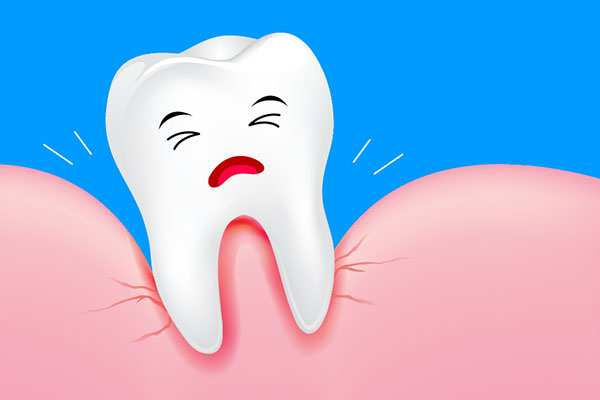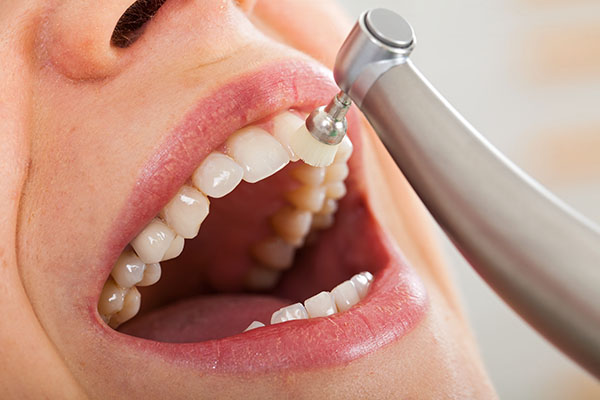 Bleeding from any area of the body is concerning, and bleeding gums are no exception. There are some simple causes for gums to bleed, including a new flossing routine or brushing too hard. A more serious concern for gum bleeding is periodontitis, also known as gum disease. Gum disease has many symptoms, and individuals who experience regular bleeding should consult a dental professional. Learn helpful information about gum disease and other potential reasons for gum bleeding.
Bleeding from any area of the body is concerning, and bleeding gums are no exception. There are some simple causes for gums to bleed, including a new flossing routine or brushing too hard. A more serious concern for gum bleeding is periodontitis, also known as gum disease. Gum disease has many symptoms, and individuals who experience regular bleeding should consult a dental professional. Learn helpful information about gum disease and other potential reasons for gum bleeding.
What is gum disease?
Periodontitis is very common during adulthood: The Centers for Disease Control and Prevention states that slightly more than 47% of adults 30 years of age and older have some form of periodontal disease. Gum disease typically develops in four stages. First, a sticky film called plaque forms on the teeth. Plaque forms because of the interaction between the naturally occurring bacteria in the mouth and foods and drinks consumed.
Regular brushing and flossing remove plaque. However, any plaque that is not removed from the teeth through regular brushing can harden under the gumline and turn into tartar, the second stage. Only a professional dental cleaning can remove tartar.
Third, if tartar remains on the teeth and gums, gingivitis develops. Gingivitis is inflammation of the gum tissue around the base of the teeth. It is during this stage that individuals may start to experience bleeding gums. Fortunately, gingivitis is reversible with professional help and good oral health at home.
Fourth, the ongoing gum inflammation can lead to periodontitis, the final stage of gum disease. The bacteria continue to grow and create infections that can ultimately lead to tissue, bone, and tooth loss.
What are the symptoms of gum disease?
Gums that bleed easily are just one symptom of gum disease. Additional symptoms include:
- Swollen, puffy, or tender gums
- Halitosis or bad breath
- Painful chewing
- Bright red or purplish gums instead of pale pink
- Loose teeth
- Gums that pull away from the teeth
If individuals notice one or more of these symptoms, schedule an appointment with a dentist. Earlier treatment for periodontitis increases the chance of reversing the damage.
What are other causes for bleeding gums?
Gum disease is only one possible reason for gums to bleed. Other common causes include certain medications, hormonal changes during pregnancy, smoking or chewing tobacco, and dental appliances or dentures that do not fit properly. Individuals who experience occasional bleeding from the gums do not need to see a dental professional immediately. However, patients who have regular bleeding and are unsure about the cause should schedule an appointment to see a dentist.
How can I prevent gum bleeding?
Good oral health and regular dental checkups can prevent bleeding. It takes a combination of these efforts to ensure that plaque is effectively removed from the teeth and that tartar and gingivitis are reversed. If a dentist concludes that gum bleeding is not caused by gum disease, patients should visit a doctor to find out if there are other underlying conditions.
Conclusion
Bleeding gums are a sign of gum disease, but there are also other causes. If you have gums that bleed regularly, schedule a consultation with a dentist to determine the cause.
Request an appointment or call Founders Dental at 720-893-7362 for an appointment in our Castle Rock office.
Recent Posts
Gum disease treatment plays a crucial role in maintaining oral health and preventing long-term dental complications. Dentists provide comprehensive care to address the symptoms of gum disease and restore gum tissue to optimal health. Here are five key benefits of seeking gum disease treatment from a professional dentist.Gum disease, particularly in its advanced stages, is…
Gum disease is very common in the United States, which often leads many to believe it is not as serious of a concern as it actually is. However, gum disease should be taken seriously, and learning more about it can help you determine why it is important to treat and prevent gum disease in order…
Flossing can seem like a chore, but the link between flossing and bleeding gums is clear. Sometimes, when you floss, you might occasionally find it causes your gums to bleed. That does not mean that flossing is bad for you — but you may not be doing it properly. Frequent flossing is the solution to…


